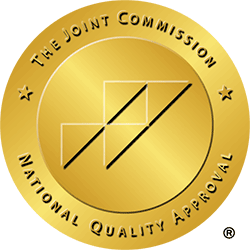
Mental health and behavioral health are terms often used interchangeably, but they have distinct meanings and scopes. Understanding the differences between these two concepts is crucial for recognizing the types of care and support needed for various challenges. At BriteLife Recovery, we believe in empowering individuals with knowledge to better navigate their wellness journeys.
Defining Mental Health
Mental health refers to a person’s emotional, psychological, and social well-being. It influences how individuals think, feel, and behave, as well as how they handle stress, interact with others, and make decisions. Mental health conditions, such as depression, anxiety, bipolar disorder, and schizophrenia, are primarily rooted in the brain’s functioning and chemistry.
Key aspects of mental health include:
- Emotional Well-Being: The ability to manage emotions effectively, whether positive or negative.
- Cognitive Functioning: How well a person processes information, thinks clearly, and makes decisions.
- Interpersonal Relationships: The capacity to form and maintain meaningful connections with others.
Defining Behavioral Health
Behavioral health is a broader term that encompasses mental health while also focusing on how behaviors impact overall well-being. It includes the choices and actions people take to improve or harm their physical and mental health, such as substance use, eating habits, or exercise routines. Behavioral health addresses conditions that result from these behaviors, like addiction, eating disorders, or chronic stress.
Key aspects of behavioral health include:
- Habits and Actions: Patterns of behavior that influence health, such as smoking, substance use, or diet.
- Physical and Emotional Connection: How behaviors affect physical health and vice versa.
- Preventive Care: Encouraging healthier choices to prevent long-term conditions.
How Mental Health and Behavioral Health Intersect
While mental health focuses on emotional and psychological states, behavioral health considers how behaviors influence overall well-being, including mental health. For instance:
- Someone with depression (a mental health condition) may engage in unhealthy behaviors like substance use (a behavioral health issue) to cope.
- Chronic stress from poor work-life balance (behavioral health) can lead to anxiety or other mental health conditions.
Understanding this overlap is critical for comprehensive care. Treating only one aspect—mental health without addressing behavior, or behavior without acknowledging mental health—can result in incomplete recovery.
Why the Distinction Matters in Treatment
Distinguishing between mental and behavioral health helps professionals create targeted treatment plans that address the root causes of an individual’s challenges.
- Mental Health Treatment: Often includes therapy, medication, and interventions focused on emotional and psychological healing.
- Behavioral Health Treatment: May incorporate lifestyle coaching, substance use counseling, and programs aimed at modifying harmful behaviors.
At BriteLife Recovery, we adopt an integrated approach that considers both mental and behavioral health, providing holistic care to meet the unique needs of each individual.

Promoting Holistic Wellness
Whether the challenge lies in mental health, behavioral health, or both, addressing these areas together fosters a more comprehensive path to wellness. At BriteLife Recovery, our team of professionals is dedicated to helping individuals understand their unique needs and guiding them toward lasting healing.
If you or someone you love is struggling with mental or behavioral health challenges, reach out to us today. With the right support, recovery and wellness are within reach.
SPEAK WITH AN ADDICTION SPECIALIST



